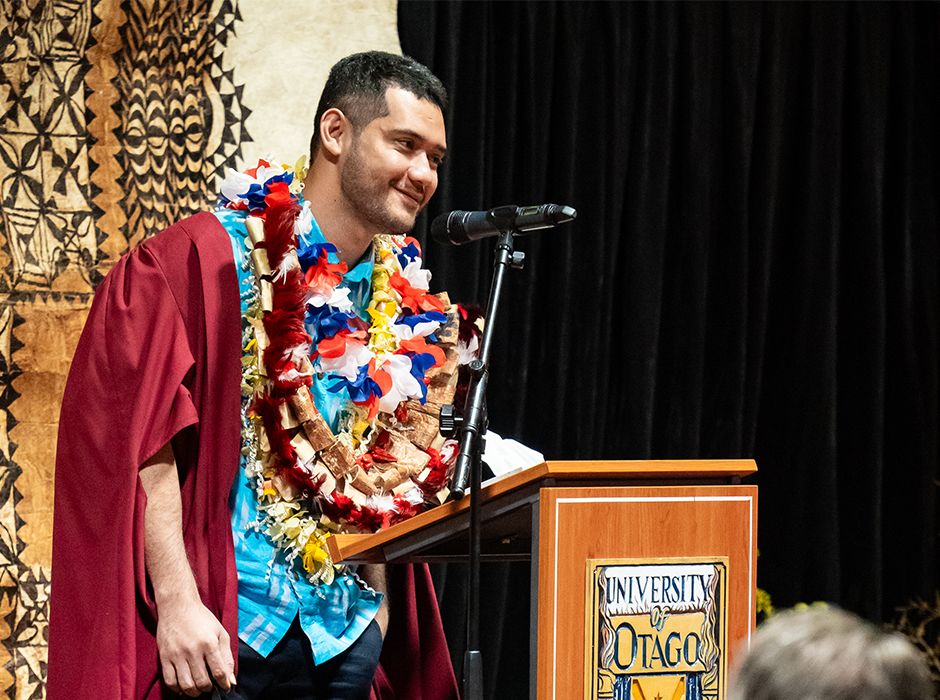
PhD graduate Dr Keresoma Leaupepe at his graduation on Saturday.
A PhD graduate is on a mission for Pacific gout sufferers. Having witnessed first-hand the physical and financial pain of conventional gout medications in Samoa, Dr Keresoma Leaupepe is determined to find alternative treatments.
Keresoma graduated with a PhD in biomedical sciences on Saturday and intends to continue the work he started during his studies – exploring gout in Polynesian populations, specifically genetic associations and curcumin intervention.
For his studies, he ran a pilot study in Samoa. While the results have not been published, he believes they provide promising evidence for curcumin, the active ingredient in turmeric, for relieving pain in gout sufferers.
The trial involved treating gout patients with a specially formulated supplement containing curcumin, enhanced with black pepper extract to improve absorption.
Turmeric root, known locally as ago/lega, is abundant in Samoa and has been used traditionally for various ailments, including gout.
"The study results are encouraging, particularly because they do not carry the serious kidney side-effects associated with conventional anti-inflammatory drugs," Keresoma says.
Keresoma now plans to conduct a comprehensive clinical trial involving 300 patients, in collaboration with the National University of Samoa (NUS).
The research journey has also solidified his interest in genomics within the Pacific region.
"I'm fascinated by the molecular basis of health and disease. I want to profile and understand crucial genetic outliers in Polynesian populations related to health," he says.
Keresoma is particularly interested in identifying Polynesian-specific genetic variations that increase susceptibility to gout—these are variants not found in Caucasian populations.
Keresoma's academic journey began at Avele College in Apia, followed by a preparatory year at the National University of Samoa.
A New Zealand Aid scholarship brought him to Otago where he planned to study health, then discovered a passion for biomedical sciences.
He completed a Bachelor of Biomedical Sciences, followed by honours and master's degrees, before embarking on his PhD studies. The Covid-19 pandemic brought him back to Apia, where he completed his PhD in 2020.
During his time at Otago, Keresoma enjoyed a summer studentship and was supervised by leading researchers including Professor Tony Merriman and Professor Katrina Sharples.
Reflecting on his 12 years in Dunedin, he enjoyed just how comprehensive his education was, spanning various disciplines such as biochemistry, genetics, anatomy, pathology, microbiology, and immunology.
“I love the broad opportunity biomedical science creates. Together, they have many possibilities for health research.”
This diverse knowledge base now supports his work as a lecturer at the NUS School of Medicine in Apia, where he focuses on Pacific natural herbal medicines and identifying genetic variants linked to gout in Polynesian populations.
Keresoma aspires to foster collaboration on genetic-based research, with the ultimate goal of developing personalised medicine tailored to the Samoan people.
Kōrero by Claire Grant, Communications Advisor, School of Biomedical Sciences